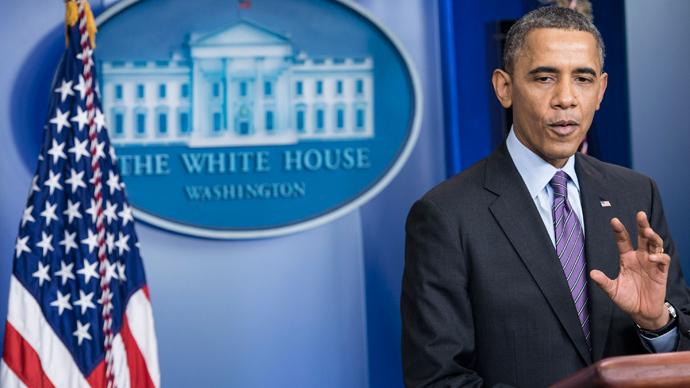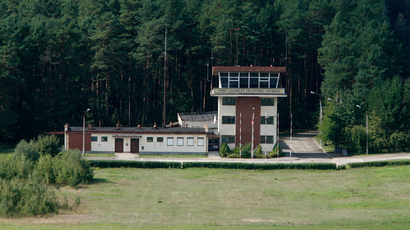Senate deal could lead to Guantanamo Bay closure

Two congressional committees have agreed to make it easier for the Pentagon to transfer Guantanamo Bay prisoners to their home countries, surpassing a major hurdle in the Obama administration's ability to close the facility.
The Senate and House Armed Services committees compromised to find common ground on the National Defense Authorization Act (NDAA) of 2014. While this iteration of the NDAA is still a mere proposal, it would greatly expand the power of the executive branch by authorizing the President to transfer Guantanamo inmates from the Cuban prison base, while maintaining the prohibition on bringing them into the United States.
Dozens of the 164 detainees still in custody have been cleared for transfer to Yemen, yet have been held at Gitmo because of the legal stipulation preventing their return home. The proposed version of the NDAA would grant this transfer, but then require the Obama administration to report on whether the Yemeni government prosecuted, detain, or freed the men in question.
“Today, Congress took one step forward and one step back on Guantanamo,” Steven Hawkins, executive director of Amnesty International USA, told reporters. “The Senate's provision that clarifies transfers to other countries is an important and welcome one that President Obama must leverage as soon as possible. However, the House's restriction on transfers to the US, even for trial or medical treatment, is a terrible blow for human rights. President Obama must find a solution to end the Guantanamo crisis.”
The NDAA proposal also forbids the use of Defense Department money to build or update any of the military structures used to house inmates through 2014. The military will not be granted any funds to do so, squashing a reported military request for nearly $200 million to construct a new building.
“It's a very good development that the Defense Department can step up its efforts to resettle and repatriate the vast majority of detainees who have never been charged with a crime,” American Civil Liberties Union senior legislative counsel Chris Anders told the Huffington Post. “It's certainly a big step in the right direction, but certainly more needs to be done.”
The congressional agreement comes as a fresh round of scrutiny is being heaped upon Guantanamo policies. A federal appeals court wondered on Monday whether it was necessary for prison guards to search the genital areas of detainees who wish to meet with their lawyers.
“That's rather provocative and offensive, isn't it?” Judge Thomas Griffith, an appointee of President George W. Bush, asked a government lawyer during proceedings on the matter. Griffith added that the authorities have a “special obligation” to make sure defendants are permitted to freely communicate with their attorneys.
“It's not as bad as it sounds,” replied Justice Department attorney Edward Himmelfarb, comparing the process to a TSA security screening at one of the nation’s airports.
Defense attorneys have accused Guantanamo staff of impeding counsel often in the past (alleging that privileged conversations were monitored, among other accusations), yet the Justice Department claimed Monday that the genital searches were a necessary security measure.
Chief Judge Merrick B. Garland, admitting that images taken of the contraband taken from inmates “certainly look like weapons,” asked what would follow if Guantanamo officials announced that the searches were motivated by a desire to impede the defense's progress.
“It would certainly be a very difficult case if that was the only motive,” Himmelfarb replied.














